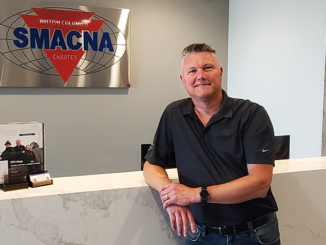
By Dave Halabourda, Project Manager at Apollo Sheet Metal
For decades, experience was the ultimate qualifier. The more years on your resume, the more valuable you were perceived to be. Promotions were handed out based on tenure, and hiring managers prioritized candidates who had “been in the industry long enough.”
But does that still hold up?
The world of work has changed. AI, automation, and digital transformation are reshaping industries at a speed we have never seen before. The skills that took years to master can now be learned in months, or worse, replaced by software entirely.
The companies that still prioritize experience over adaptability are falling behind. The real question is not how long someone has been doing a job but how well they can keep up with what is next.
Why Experience Used to Matter
Before technology accelerated change, experience was a clear indicator of expertise. If you had spent 20 years in an industry, it meant:
- You had seen enough to predict challenges before they happened.
- You had mastered industry-specific skills that took years to develop.
- You had built a deep professional network that made problem-solving easier.
Experience mattered because the fundamentals of industries stayed relatively stable for decades. A project manager from the 1990s could step into a job in 2010 and still apply 90% of what they already knew.
That is no longer the case.
Why Experience Alone No Longer Cuts It
The shelf life of knowledge is shrinking. The tools and strategies that were cutting-edge five years ago are already being replaced.
- AI is automating specialized skills that once took years to develop.
- Digital workflows are replacing legacy processes, making old ways of working obsolete.
- New technology is redefining efficiency, and companies need leaders who can adapt, not just those who have been around the longest.
If experience was the best predictor of success, we would not see younger professionals outperforming industry veterans in AI adoption, digital strategy, and modern problem-solving.
The truth? The ability to learn and adapt is now more valuable than tenure.
The Pitfall of Overvaluing Experience
Companies that cling to experience as a hiring metric often overlook high-potential candidates who bring fresh, innovative thinking.
- Experience can lead to complacency. Many seasoned professionals rely on “the way we have always done it” instead of challenging outdated methods.
- Years on the job do not guarantee adaptability. Some of the most resistant-to-change employees are the ones with the most tenure.
- Younger professionals and career switchers often bring new perspectives and faster learning curves that are better suited to today’s business landscape.
Here is a hard truth: If experience was all that mattered, Blockbuster, Kodak, and Nokia would still be industry leaders.
What Actually Makes Someone Valuable Today?
If “years on the job” is no longer the best indicator of success, what is?
- Adaptability: The ability to learn new technology and processes quickly.
- Critical Thinking: Knowing when to challenge outdated ideas and innovate.
- Collaboration: Leveraging cross-functional expertise and AI-driven insights to improve efficiency.
- Lifelong Learning: A commitment to continuous upskilling instead of relying on past knowledge.
The professionals who succeed in this new era are not the ones with the longest resumes, they are the ones who are constantly evolving.
Is It Time to Rethink Experience?
Experience still matters, but only when paired with adaptability and a growth mindset. The workforce is changing, and companies need to prioritize learning over tenure if they want to stay ahead.
So, what do you think? Does experience still hold the same weight it once did, or is it time to rethink how we evaluate talent? Let’s discuss. ■
David is a seasoned sheet metal worker with a dynamic background in drafting, BIM, project management, and operations. With extensive experience across multiple facets of the industry, he blends hands-on expertise with strategic insight, driving innovation and efficiency in every project he undertakes. David is passionate about optimizing processes and embracing new technologies.



